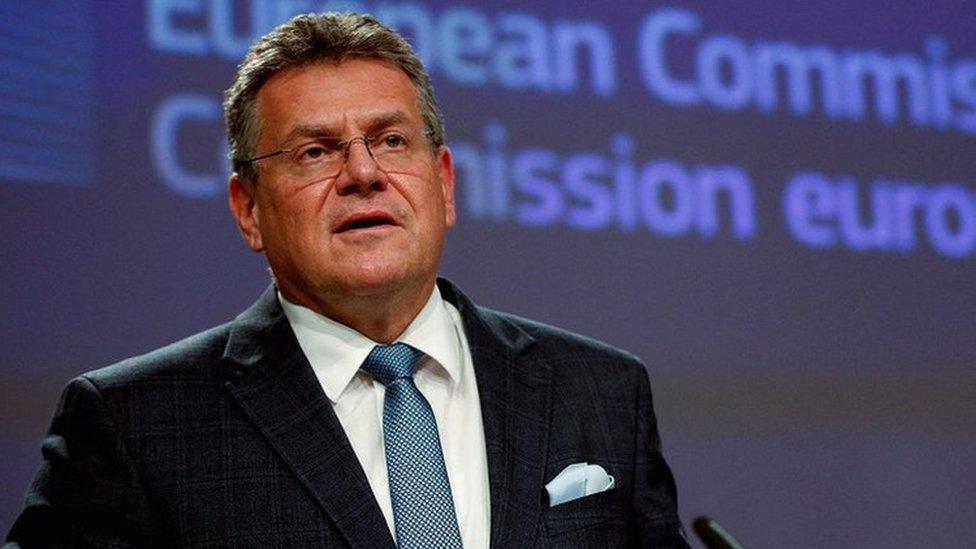NI election 2022: Business leaders urge politicians to form executive
- Published
- comments

Business leaders are concerned about the impact on the economy of no stable government
Business groups across Northern Ireland are calling on politicians to form an executive at Stormont this week.
The first sitting of the assembly - in which Sinn Féin is now the largest party - is due to take place on Friday.
The DUP has refused to commit to electing a new assembly speaker due to concerns about the NI Protocol.
New research has suggested Northern Ireland's economy slightly outperformed the UK average, partly due to the protocol.
There will be no governing executive without the DUP's support as the second largest party.
Northern Ireland's power-sharing system requires the largest unionist and nationalist parties to share first and deputy first minister posts.
Ministers can run their respective departments without an executive, but no new decisions, such as agreeing a budget, can be taken.
It comes as Irish Foreign Minister Simon Coveney is expected to meet the five main political parties in Belfast later.
The Irish government has already joined with the British and US governments to urge the formation of an executive.
Economic advantage
The latest economic outlook from the National Institute of Economic and Social Research (NIESR) said the Northern Ireland economy outperformed the UK average, and is now recovered to pre-pandemic levels.
It said Northern Ireland's trading conditions with the European Union (EU) are an economic advantage.
It said: "Northern Irish output, as measured by Gross Value Added (GVA) has slightly outperformed the UK average.
"This is partly an outcome of the Northern Irish Protocol and its special status in the Brexit arrangements, including better trade and investment conditions as part of the EU's single market and customs union."
But critics of the protocol said its economic impact has been muted as it is not yet being fully implemented due to "grace periods".
The Democratic Unionist Party says it will not join a power-sharing government without action on the protocol
Belfast Chamber chief executive and former DUP minister Simon Hamilton says his message is clear: "Get back to work".
"Businesses were now hoping that they were going to move from coming out of the pandemic edging towards recovery, hoping for a period of stability. Now we've got the exact opposite, potentially, at Stormont," he said.
"We understand that there are difficulties with the protocol, we know that from our own membership that some businesses have struggled to deal with it, others have adapted much better.
"But no one is saying to us that they don't want to have an executive.
"What they should do is get back around the executive table."
Mr Hamilton said recent history had shown that not having a functioning executive for a protracted period is "not good for Northern Ireland, it's not good for our economy and it's not good for society generally".

Under the protocol, checks are required on goods coming into Northern Ireland from the rest of the UK
The DUP, which supported Brexit, has protested against the Northern Ireland Protocol, a part of the UK's deal with the EU which keeps Northern Ireland aligned with the EU's single market for goods.
This was designed to ensure free trade across an open Irish border, but it has in turn created some new trade barriers for the movement of goods across the Irish Sea.
In February, the party removed Paul Givan from his role as first minister in protest against the protocol, triggering the collapse of the Northern Ireland Executive.
They said the protocol had undermined Northern Ireland's position in the United Kingdom.
'Hugely frustrating'
In a recent survey of members of the Londonderry Chamber, 92% of north-west businesses said the lack of a functioning executive post-election would harm their business.
President Aidan O'Kane said: "We don't see it as being a choice between an executive or the protocol. We're asking for the executive to reform and start to support businesses.
"We would ask that the UK government and the EU start to work together to iron out the problems with the protocol - that shouldn't stop the formation of a government locally."
He said it was "hugely frustrating" for businesses and "society as well".
Michelle O'Neill says the assembly election shows that the public want to see a new Northern Ireland Executive formed.
The Federation of Small Businesses in Northern Ireland (FSBNI) has also raised concerns about the impact of not having an executive on the economic landscape.
Head of FSBNI Roger Pollen said: "With so much at stake, our priority is to see the formation of a stable executive which can take decisions that will provide stability for small businesses at a time of rising costs and deep uncertainty.
"It is only through effective collaboration that we will begin to see progress on many outstanding economic policies that will help protect jobs and boost prosperity right across Northern Ireland."

GOVERNMENT CRISIS: What happens next?
HISTORIC MOMENT: From IRA politics to NI's biggest party
SINN FEIN: What does the party want?
THE ASSEMBLY: How power-sharing works in Northern Ireland
POSTCODE SEARCH: What are the results in my area?

- Published10 May 2022
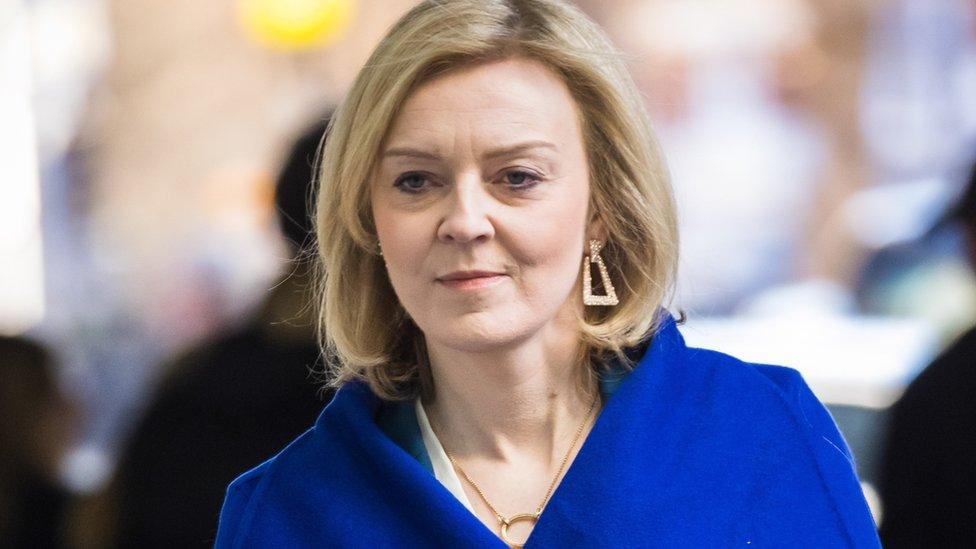
- Published10 May 2022
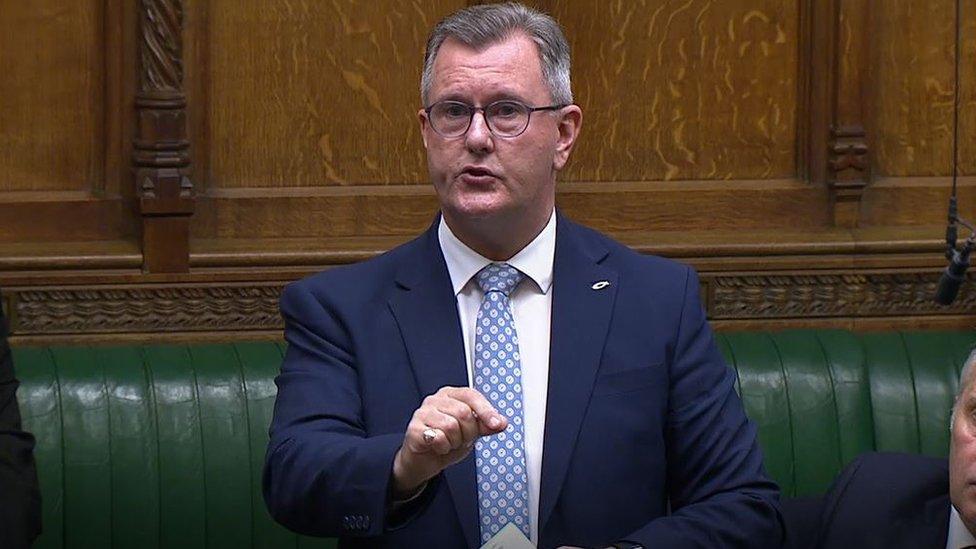
- Published8 May 2022

- Published8 May 2022
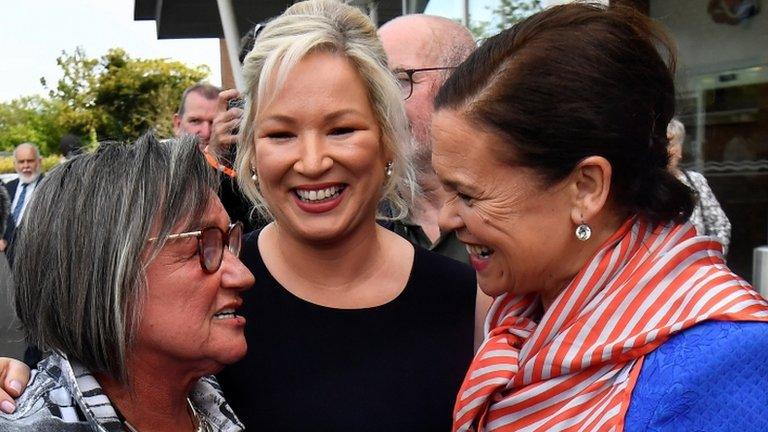
- Published3 February 2022
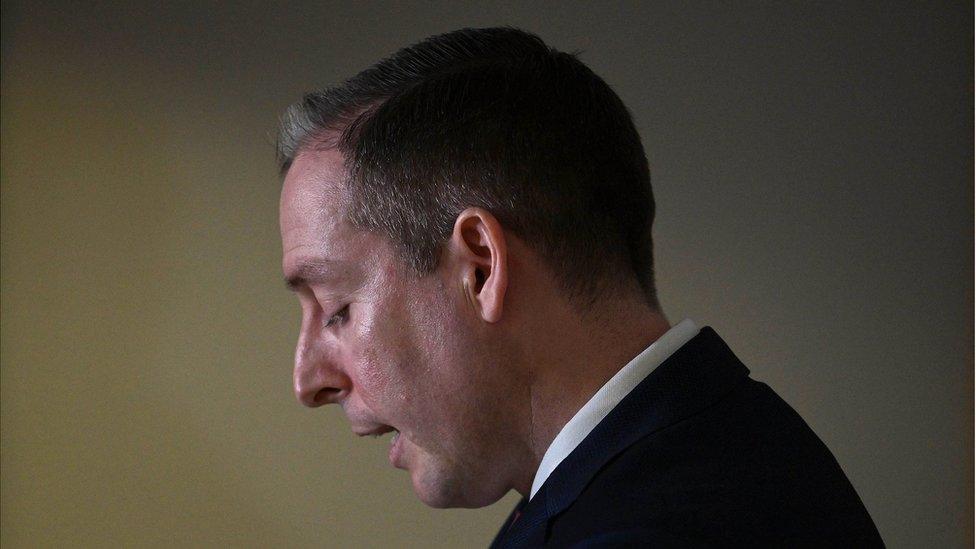
- Published9 May 2022
